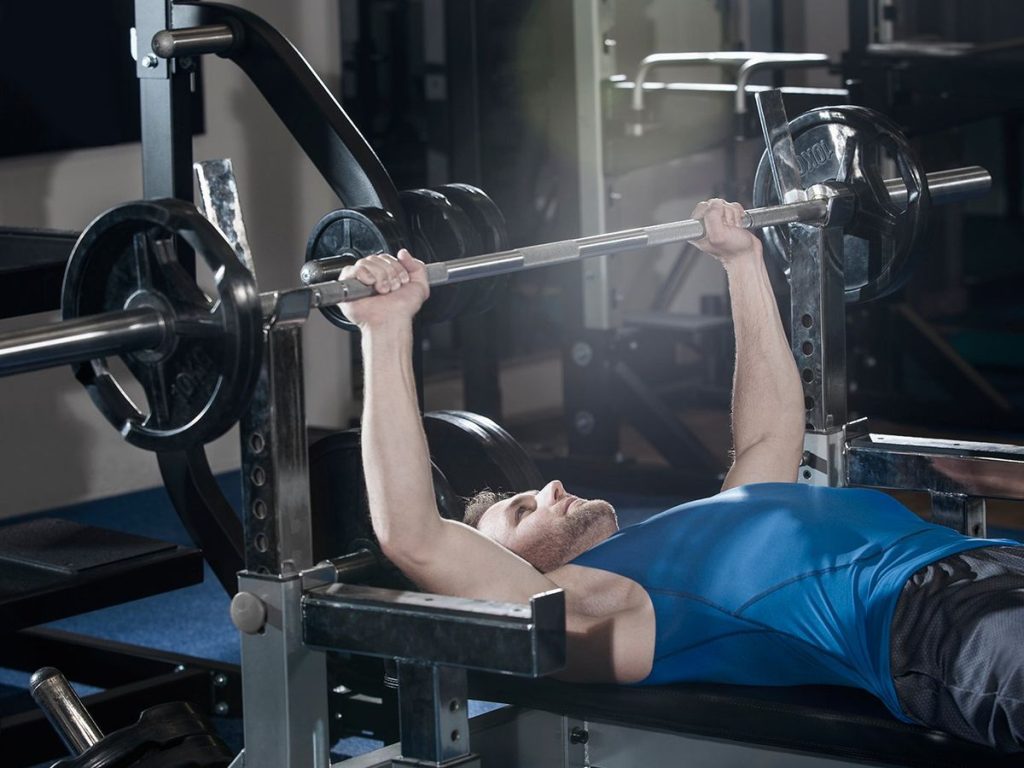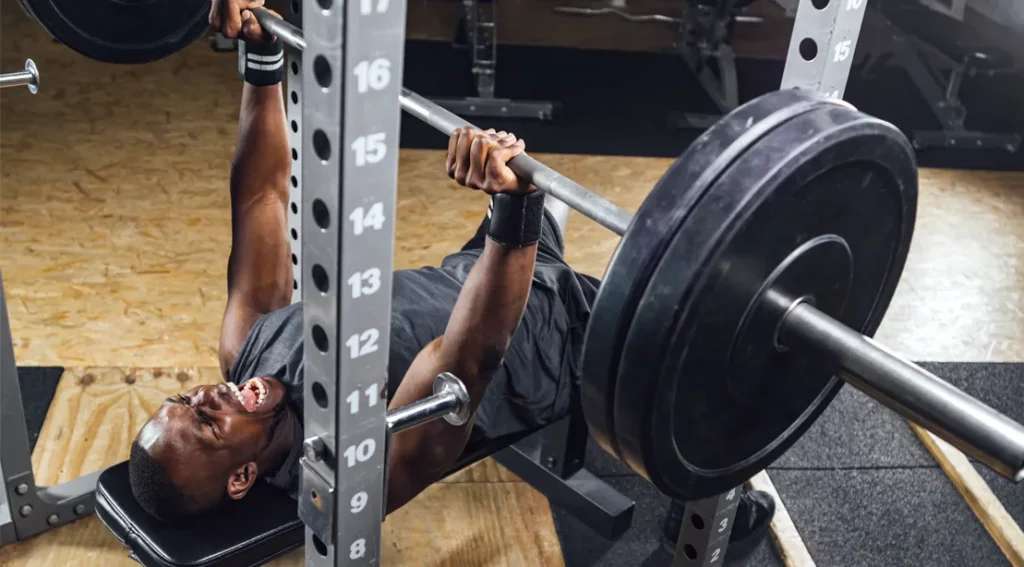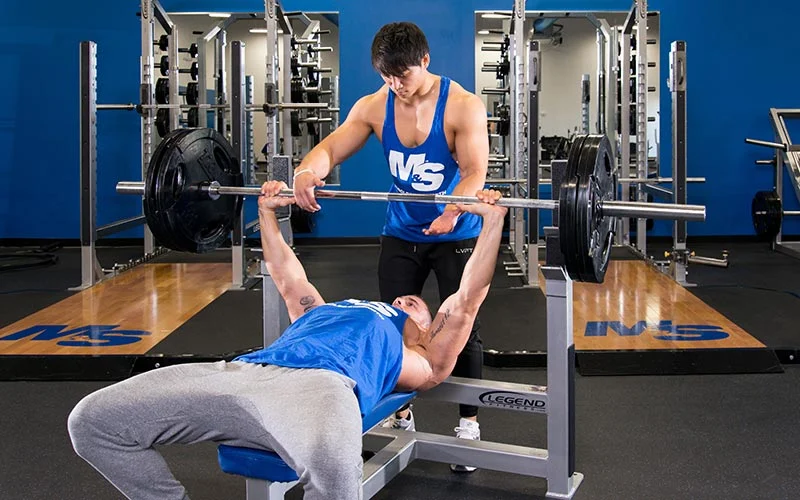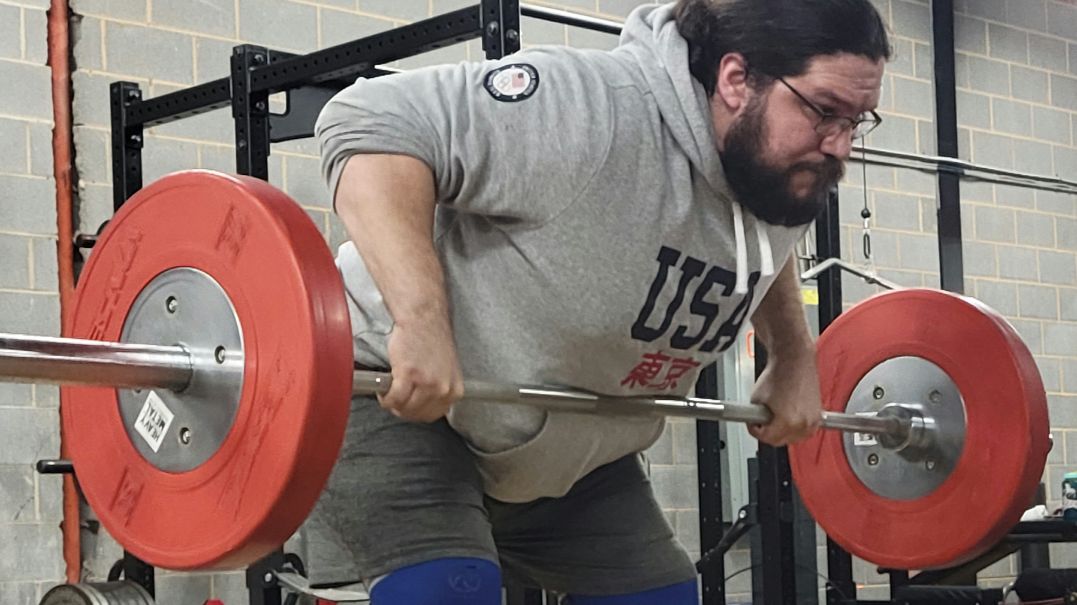80kg bench press is considered “good” and varies depending on an individual’s fitness level, goals, and body weight. In a general context, an 80kg bench press is a notable achievement and indicates a reasonable level of upper body strength. It is often considered good for those who are relatively new to strength training or looking to build and maintain strength.
However, what is considered “good” can differ widely among individuals. Experienced powerlifters and bodybuilders often lift significantly more weight, while beginners may find 80kg quite challenging. The key is to set personal fitness goals and work towards continuous improvement, whether that means increasing the weight lifted, refining technique, or achieving other personal milestones.
How Does Bench Press Strength Impact Fitness Goals?

Bench press can help you reach your fitness goals. It’s not just about building muscles; it can make everyday tasks easier, boost sports performance, and even prevent injuries.
Muscle Development
Chest Development: The bench press is renowned for its ability to target the pectoral muscles, leading to increased chest size and definition. A well-developed chest not only enhances aesthetics but also supports upper body strength and stability. This is particularly beneficial for those aiming to achieve a broader, more muscular chest.
Shoulder and Triceps Development: In addition to the chest, the bench press engages the anterior deltoid muscles of the shoulders and the triceps. Strengthening these areas contributes to a well-rounded upper body development. Well-developed shoulders and triceps not only improve aesthetics but also provide functional strength for various activities.
Functional Strength
Enhanced Daily Activities: Improved bench press strength goes beyond aesthetics and translates to increased functionality in daily life. Everyday tasks like pushing heavy doors, lifting groceries, and moving furniture become more manageable. This enhanced functional strength can greatly improve the quality of daily living.
Functional Movement Patterns: Bench press strengthens fundamental movement patterns crucial for functional activities. Pushing and pressing motions are common in everyday life, and a strong bench press can enhance the ability to perform these actions efficiently and with reduced effort.
Athletic Performance
Sports-Specific Strength: For athletes, bench press strength can be a game-changer. It helps improve sports-specific strength, enabling athletes to excel in their chosen disciplines. For example, football players benefit from increased upper body strength for tackling and blocking, while wrestlers rely on it for powerful takedowns.
Explosive Power: A strong bench press contributes to explosive power, which is essential in sports that require sudden bursts of strength and speed. Athletes can generate more force and exhibit better agility and quickness, giving them a competitive edge in their sports.
Injury Prevention
Shoulder Stabilization: Bench press not only targets major muscle groups but also engages the stabilizing muscles around the shoulder joint, such as the rotator cuff. Strengthening these stabilizers helps maintain shoulder stability, reducing the risk of injuries like rotator cuff tears and shoulder impingements.
Joint Health: A stronger upper body can alleviate stress on the joints, potentially preventing issues like joint pain and strains. It promotes joint health by distributing forces more evenly and reducing the impact on vulnerable areas, such as the shoulders and elbows.
Fat Loss
Increased Metabolism: Building muscle through bench press training leads to an increase in resting metabolic rate. This means the body burns more calories even at rest, making it easier to maintain or achieve a healthy body weight. The metabolic boost from muscle growth is an effective strategy for long-term fat loss.
Effective Weight Management: A strong bench press contributes to effective weight management. As muscle mass increases, it becomes easier to control body weight and body fat levels. The ability to burn more calories throughout the day aids in weight maintenance and weight loss efforts.
Plateau Breaking
Compound Exercise Benefits: The bench press is a compound exercise, engaging multiple muscle groups simultaneously. When individuals hit a plateau in their training, progress in the bench press can serve as a catalyst for overcoming that plateau. It stimulates overall muscle growth and provides a new foundation for further progress.
Diversifying Workouts: Incorporating bench press variations and complementary exercises can help individuals break through training plateaus. By diversifying their workouts, they challenge their muscles in new ways and stimulate growth. These variations can include incline bench press, decline bench press, and dumbbell bench press, among others.
Psychological Benefits
Confidence Boost: Achieving and improving bench press strength can have a significant psychological impact. It boosts self-confidence and body image, as individuals see tangible improvements in their physical abilities. This boost in confidence extends to other areas of life, promoting a positive self-perception.
Motivational Catalyst: Setting and achieving bench press goals can act as a powerful motivational catalyst. As individuals witness their strength gains, they become more determined and motivated to pursue and attain their broader fitness objectives. The sense of achievement in the bench press becomes a driving force in their fitness journey.
How To Determine The Ideal Bench Press Weight For Me?
Determining the ideal bench press weight for you involves considering your individual fitness goals, experience level, and safety. Here’s how you can find the right starting weight
Assess Your Current Strength
Begin with an empty barbell (45 pounds or 20 kilograms) to assess your current strength. If you’re a beginner, you may even start with just the bar to ensure you have proper form.
Set Clear Goals
Determine your specific fitness goals. Are you aiming to build muscle, increase strength, or improve endurance? Your goals will influence the weight you choose.
Use a Warm-Up Set
Perform a warm-up set with a light weight (around 50-60% of your perceived maximum) to prepare your muscles and joints.
Gradually Increase the Weight
After the warm-up, increase the weight incrementally. For beginners, consider adding 2.5kg (5 pounds) at a time, while more experienced lifters may increase by 5-10kg (10-20 pounds).
Assess Your Repetition Ability
Lift the weight for a set of repetitions (e.g., 8-12 reps). If you can complete the set with proper form, you’re likely at an appropriate weight. If it feels too easy, consider increasing it for the next set. If it’s too challenging to complete the set with proper form, reduce the weight.
Listen to Your Body
Pay attention to how your body feels during and after the sets. If you experience discomfort or strain, it may be a sign that the weight is too heavy.
Use a Spotter
When testing your limits, especially with heavy weights, it’s important to have a spotter for safety. They can assist if you struggle with the lift.
Progress Gradually
As you continue training, aim to gradually increase the weight over time as your strength and confidence grow.
Consider Periodization
Periodization involves changing your training program to include phases of heavier and lighter weights. It can be a strategic approach to progressively challenge yourself and avoid plateaus.
Consult a Trainer
If you’re uncertain about determining the ideal weight or your form, consider working with a certified fitness trainer who can provide personalized guidance and ensure your safety.
How To Perform A Bench Press Correctly?
Performing a bench press correctly is essential to ensure both effectiveness and safety. Here are step-by-step instructions on how to do it properly
Preparation and Setup
- Lie flat on a bench with your feet flat on the ground.
- Ensure your head, shoulders, and buttocks are in contact with the bench.
- Position your eyes directly under the barbell.
- Grip the barbell with your hands slightly wider than shoulder-width apart, keeping your wrists straight.
- Lift the barbell from the rack and hold it above your chest with your arms fully extended.
Lowering the Bar
- Inhale and lower the barbell slowly and under control to your mid-chest. Keep your elbows at a 45-degree angle to your torso.
- Maintain a natural arch in your lower back and keep your shoulders back and down.
The Press
- Exhale and press the barbell back up to the starting position, fully extending your arms. Keep your wrists straight and your grip firm.
- Focus on pushing through your heels and engaging your chest, shoulders, and triceps to lift the weight.
Repeat And Rack the Bar
- Perform the desired number of repetitions, maintaining proper form with each repetition.
- Once you’ve completed your set, carefully rack the barbell back onto the rack.
Key Tips
- Start with a weight that you can control comfortably. You can always increase it as you progress.
- Use a spotter, especially when lifting heavy weights, to ensure safety.
- Keep your body stable and avoid excessive arching of the lower back.
- Avoid bouncing the bar off your chest or locking your elbows at the top of the movement.
- Maintain a controlled pace throughout the exercise, focusing on muscle engagement rather than speed.
What Do Fitness Experts Say About What Makes A Good Bench Press?

Fitness experts emphasize several key factors that contribute to what they consider a good bench press
Proper Form: Fitness experts consistently stress the importance of maintaining correct form during the entire lift. This includes keeping your back flat, maintaining a slight arch in your lower back, and ensuring your feet are flat on the ground. Good form not only minimizes the risk of injury but also optimizes muscle engagement for a more effective lift.
Full Range of Motion: A complete range of motion is crucial. The bar should touch your mid-chest, and you should fully extend your arms at the top of the lift. This ensures that you’re engaging the chest, shoulders, and triceps through the entire movement.
Controlled Eccentric Phase: Experts emphasize controlling the barbell during the eccentric (lowering) phase of the lift. This controlled descent not only minimizes the risk of injury but also maximizes muscle engagement and strength gains.
Proper Breathing Technique: Breathing is a critical aspect of a good bench press. You should inhale as you lower the bar and exhale as you press it back up. This helps maintain stability and provides core support.
Progressive Overload: Fitness experts stress the concept of progressive overload, which means gradually increasing the weight over time to stimulate muscle growth and strength gains. Consistent progression is a fundamental principle for a good bench press.
Safety and Spotting: Safety is a top priority. Experts encourage lifters to use spotters, especially when handling heavy weights, to prevent accidents. They also suggest setting safety bars or pins in place in case of failure.
Individual Goals: Fitness experts acknowledge that what constitutes a “good” bench press can vary widely based on individual goals. Whether you aim for strength, hypertrophy (muscle growth), endurance, or general fitness, your definition of a good bench press may differ.
Consistency: Regular and consistent bench press training is key to achieving a good bench press. Fitness experts stress the importance of sticking to a training program and staying committed to your goals.
Recovery and Nutrition: Achieving a good bench press is not just about lifting, it also involves proper recovery and nutrition. Fitness experts recommend sufficient rest, hydration, and a balanced diet to support muscle growth and overall health.
Avoiding Ego Lifting: Experts caution against ego lifting, which is when individuals attempt weights that are beyond their capability to impress or prove themselves. This not only increases the risk of injury but also hinders progress.
Bench Press Strength Standards (in kilograms)
| Body Weight (kg) | Untrained | Novice | Intermediate | Advanced | Elite | World Record |
| Adult Men | ||||||
| 52 | 37.5 | 50.0 | 60.0 | 82.5 | 100.0 | 199.0 |
| 75 | 55.0 | 70.0 | 85.0 | 115.0 | 145.0 | 245.0 |
| 100 | 62.5 | 82.5 | 102.5 | 137.5 | 172.5 | 280.0 |
| Adult Women | ||||||
| 44 | 22.5 | 30.0 | 35.0 | 42.5 | 52.5 | 80.0 |
| 60 | 32.5 | 40.0 | 42.5 | 57.5 | 67.5 | 122.0 |
| 90 | 40.0 | 52.5 | 60.0 | 75.0 | 95.0 | 137.0 |
FAQ
How much should 80 kg man bench press?
For an 80 kg man, a good benchmark is around 100-130 kg for an effective bench press strength goal.
How much should a 75 kg man bench press?
A 75 kg man can aim for a bench press weight range of 90-120 kg to build strength effectively.
Is 100 kg bench impressive?
Yes, bench pressing 100 kg is often considered an impressive milestone in strength training.
Is 80 kg bench good at 16?
Yes, 80kg bench press at 16 is a great achievement and shows dedication to fitness.
Is 100 kg deadlift good?
Yes, a 100 kg deadlift is a solid accomplishment, especially for those starting their strength journey.
Is 60 kg A Good bench press?
Yes, a 60 kg bench press can be good for those beginning their strength training journey or focusing on overall fitness.
Is 50 kg bench press impressive?
A 50 kg bench press may not be considered impressive in advanced strength circles, but it’s a great starting point for beginners.
Can you bench 600 kg?
Bench pressing 600 kg is an incredible feat achieved by only a handful of world-class powerlifters, making it extremely rare.
Is 50 kg bench press hard?
It can be challenging if you’re new to lifting, but with consistent training and dedication, you can work your way up to it.
Why is my bench so weak?
A weak bench press could be due to various factors, including improper form, lack of consistency, or insufficient strength in supporting muscle groups. Focusing on technique and gradual progression can help improve your bench press strength.
Final words
In conclusion, the question of whether an 80kg bench press is good can be answered in different ways. It all depends on your goals and where you are on your fitness journey. For many, reaching an 80kg bench press is a significant achievement, showcasing a strong and healthy upper body. It’s a milestone worth celebrating, whether you’re a beginner or a seasoned lifter.
But remember, what’s most important is setting your own fitness goals and working steadily toward them. Whether you’re lifting 80kg, more, or less, it’s all about making progress, staying safe, and feeling good about your journey to a stronger and healthier you. So keep pushing, stay consistent, and enjoy the ride to better fitness!











